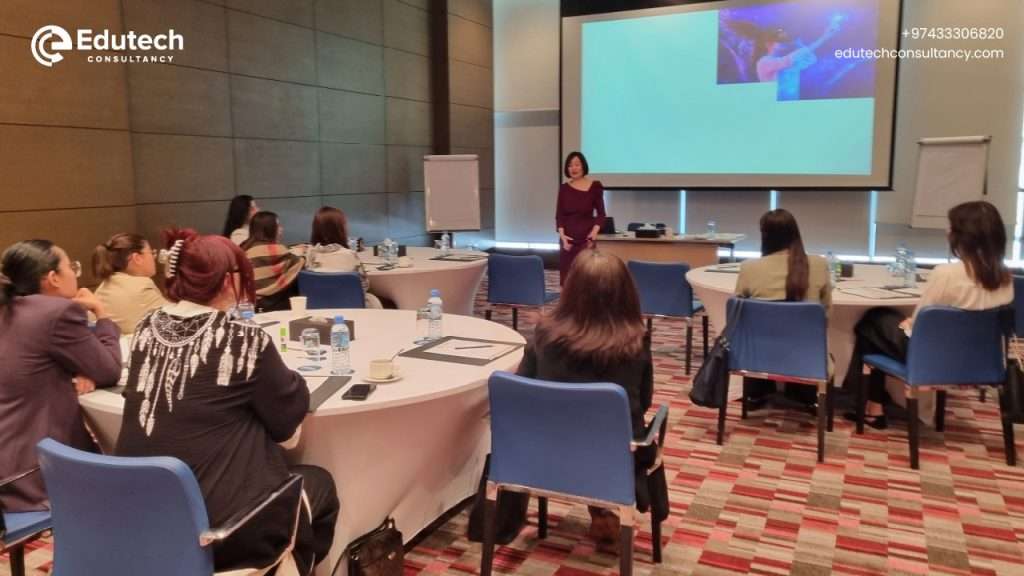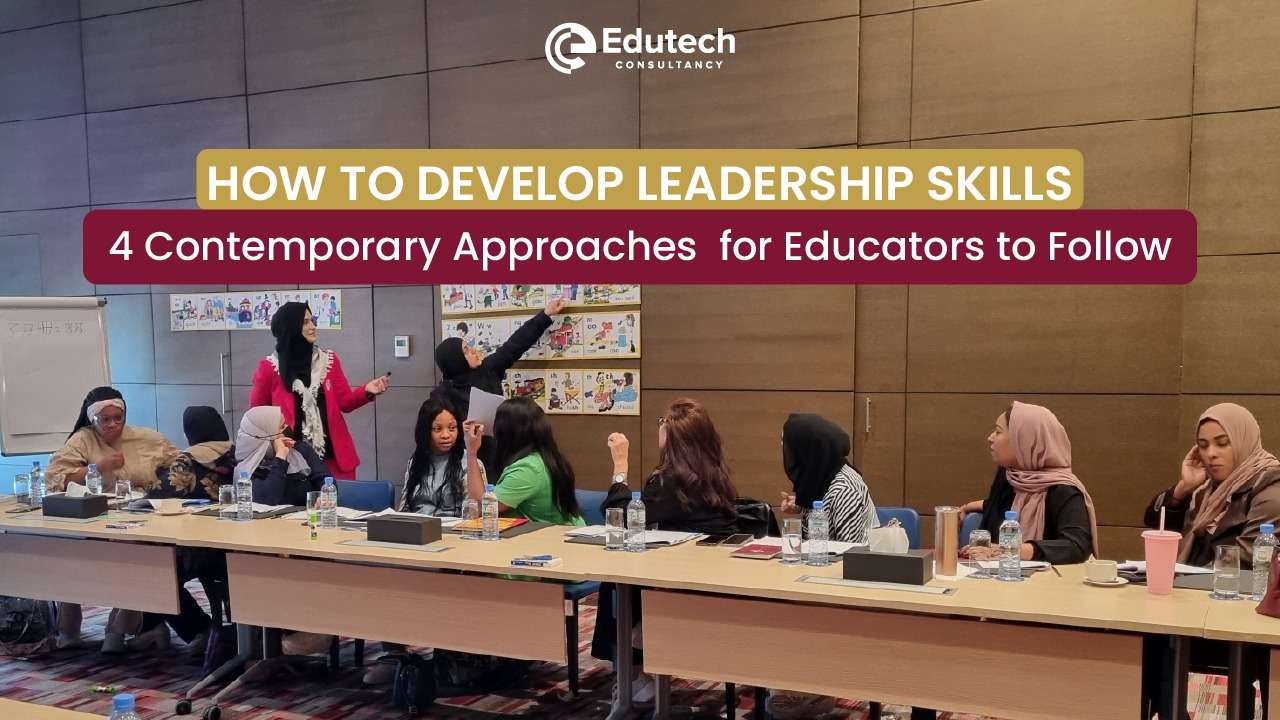Introduction
Leadership in education! How do you perceive it? Is it about managing classrooms or coordinating activities? Or is it also about inspiring students with abilities that drive meaningful change in their lives? With the ever-growing demands on educators, leadership isn’t just confined to the above-mentioned duties. Rather, it has extended to more prospects to meet the needs of today’s dynamic educational environment. But how to develop leadership skills in educators to make a lasting impact on students and peers? Inspiring leadership.
The one that has the elements of emotional intelligence, strategic thinking, adaptability, and the ability to drive academic and personal growth in students. In true meaning, a leader that not only manages but brings profound change around, illuminates the path for others and inspires growth.
Today, in this blog, we will explore some leadership skills that teachers must have to drive through the challenges in the contemporary world of education.
How to Develop Leadership Skills: Emotional Intelligence is the first step
Emotional intelligence is the quality that enables a person to understand and manage one’s own emotions while showing empathy for the feelings of others. How does this skill help educators? Teachers need positive relations with their students, parents, and peers. For educators, this skill is vital for building strong relationships with students, parents, and their peers. They face a lot of challenging situations on an everyday basis. Therefore, to successfully cope with such hurdles, teachers must build strong emotional intelligence. Hence, this is the first step in discussing how to develop leadership skills. Moreover, reflecting on their emotions can help teachers understand the triggers and responses. To build strong emotional intelligence, teachers can also practice journaling every day.
Teachers can develop emotional intelligence by practicing self-awareness, managing emotions through mindfulness, and empathizing with students’ perspectives. Active listening and clear communication further strengthen relationships.

Classroom Benefit: Emotional intelligence helps educators create an environment that allows students to feel safe and supported.
2. Adaptive Leadership: The skill for an evolving world
Adaptive leadership means adjusting one’s strategies and approaches to meet changing needs. For teachers, this skill is extremely crucial. This helps them navigate the changes, like incorporating new technology and adapting to remote learning. Eventually, teachers can develop this capability in various ways. Taking the chance to implement new tech approaches in teaching provides an opportunity to practice this. Teachers can also experiment with different teaching methods and identify what works best for the students. Furthermore, getting knowledge on ever-evolving tech trends in education through events and workshops can be an effective way to learn this and lead. An adaptive leader swiftly embraces creative strategies to keep students engaged in interactive learning.
Classroom Benefit: Adaptive leadership enables educators to remain resilient and effective, ensuring that learning continues smoothly even in challenging situations.
3. Cultural Competency: A leader’s key to create impact
As the world becomes increasingly interconnected, classrooms have transformed into small hubs of global diversity. The mix of cultural backgrounds additionally, among students and educators is now a beautiful norm, shaping classrooms into spaces of shared learning. Cultural competency helps turn this diversity into a strength. When teachers, as leaders in class, can understand, respect, and work effectively across diverse cultures, a sense of belonging develops amongst everyone.
Teachers often wonder how to develop leadership skills that encapsulate cultural competency. The simplest way to practice is to learn in-depth about your students’ cultural backgrounds. Moreover, researching different students’ traditions, values, and learning preferences will ultimately help teachers connect with them on a deeper level. Another way is to be self-aware about personal assumptions that influence teaching. Having an open dialogue and collaboration among families and communities is another step in bridging cultural gaps and building empathy and understanding for one another.
Classroom Benefit: Cultural competence brings up an environment where all students feel seen, respected, and encouraged to participate fully in their learning experience.
4. Technological Proficiency: Leading in the Digital Age
Technological proficiency is not just a skill whereas it is a strong mindset. In the changing landscape of education, technology is the driving force; it reshapes how educators teach, engage, and lead. It’s not enough to know how to use tools; it’s more about integrating them thoughtfully to streamline learning effectively. For instance, a teacher proficient in virtual learning platforms might lead professional development sessions for their peers, equipping the entire staff with skills to create effective online classrooms. This way, imparting knowledge through technological proficiency doesn’t just benefit educators. It serves as a ripple effect also on students and the broader educational environment. Similarly, educators who master technology naturally step into leadership roles within their schools and communities.

Classroom Benefit: Technological proficiency enhances teaching efficiency and prepares students for a tech-driven world.
Take the Next Step in Your Leadership Journey
As an educator, your leadership influences not just your students but also your colleagues and the whole school community. You, as a dedicated educator, can also excel in your role under an inspiring leader. Finding the right path to start from is one thing to do. You can sign up for Edutech Consultancy’s workshop on Developing Leadership Skills and Influence to accomplish this.
The workshop will provide participants with insights into how to develop Leadership Skills. Attendees will also get an opportunity to connect with like-minded educators and inspire each other.
Register here to take the first step toward becoming the leader your students and school need. With our workshop, you can upskill yourself on how to develop leadership skills to shine in the world of leaders.
FAQs
1. Why is leadership important for educators?
Leadership allows educators to inspire students. Promoting collaboration among peers with strong leadership skills helps educators overcome everyday challenges, implement new teaching methods, and encourage positive change in their schools.
2. As leaders, how can teachers develop emotional intelligence?
Practicing self-awareness, effective motion management, and empathy are some of the traits teachers must have to develop emotional intelligence. Additionally, regular reflection and active listening are some practical approaches to enhancing this essential skill.
3. What part does cultural competency play in teachers’ displaying strong leadership skills?
Cultural competency helps educators create inclusive classrooms. This makes diverse learners feel valued and supported. Understanding many cultures helps develop respect for cultural differences in a classroom.


